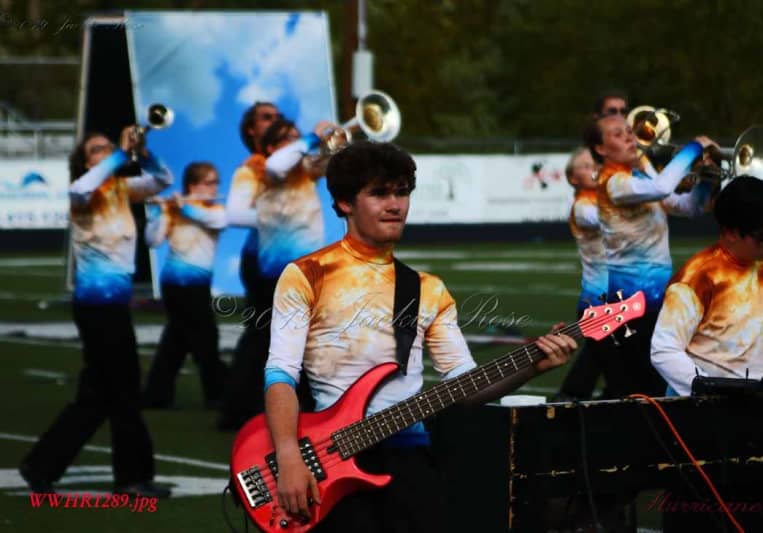
Growing up in a family associated with music, the groove was in my blood. I began singing in the church choir at 6 yrs. old started playing bass at 10, and have participated as a vocalist and an instrumentalist in competition ensembles for the past 4 years. Music is all about groove and time, and the good Lord blessed me with both.
Experience:
1 yr. as a competition singer/dancer
3 yrs. as a competition bass guitarist
2 yrs. in a marching band as a bass guitarist
6 yrs. in a multi-genre recording group
5 yrs. as a studio bassist
I'd love to hear about your project. Click the 'Contact' button above to get in touch.
Interview with Dillon Brown
Q: What are you working on at the moment?
A: I am currently working on new music for the band I work with which is known as Empire Point.
Q: Analog or digital and why?
A: Each has its place, analog is cool when you have solid musicians because of how natural the process is, but if you want something different or you can't get it sounding exactly how you want through natural means digital is great.
Q: What's your 'promise' to your clients?
A: I promise to put my soul into every project I take on.
Q: What do you like most about your job?
A: I love the freedom of music and the honesty and style of the business as it has evolved.
Q: What advice do you have for a customer looking to hire a provider like you?
A: Go with who you feel is best for the job not necessarily who has the most technical training.
Q: What was your career path? How long have you been doing this?
A: I was raised as a professional musician, and I haven't known any other life.
Q: How would you describe your style?
A: It's rock n roll, but with a blues and folk essence coming from West Virginia. I often get described as a hippy with a hard rock dream.
Q: Which artist would you like to work with and why?
A: I would love to work with Paul McCartney because of the way his bass parts flowed with his lyrics and his presence on stage created this
Q: Can you share one music production tip?
A: Studio time isn't cheap so never come in without the song learned.
Q: What type of music do you usually work on?
A: Usually, it drifts between rock and blues, but I have played on a few singer-songwriter pieces, but my heart is largely found in indie and funk.
Q: What's your strongest skill?
A: My playing is natural, I grew up playing jam sessions constantly to find something to write and my ability to improvise with my playing makes for a natural essence that not all musicians can offer.
Q: What do you bring to a song?
A: I bring passion, rhythm, and groove. Music should be felt no matter where it is listened to, therefore, it must flow.
Q: What's your typical work process?
A: Typically I begin with analyzing the melody and flow of other instruments to determine my place, then I write piece by piece to ensure that each has a sound the artist feels embodies the piece while maintaining my artistic integrity.
Q: What other musicians or music production professionals inspire you?
A: Among musicians, I often take inspiration from Pino Palladino, Markus Miller, Victor Wooten, Jaco Pastorious, Paul McCartney, Jack Bruce, John Deacon, James Jamerson, Scott Devine, Joe Dart, Krist Novoselic, Michael League, and Scott Shiner. Music production professionals I often enjoy listening to or learning from include: Warren Huart, Rick Beato, Adam Neely, and Glenn Fricker.
Q: Describe the most common type of work you do for your clients.
A: Typically session bass because while finding someone to just play bass is simple finding a quality bass guitarist who can record effectively in a short number of takes is hard.
- Bass ElectricAverage price - $50 per song
- Singer - MaleAverage price - $50 per song
- Songwriter - LyricContact for pricing
- Songwriter - MusicContact for pricing
- Warwick streamer LX 4-string bass
- Ampeg BA115 bass amp
- Hofner Ignition model 3 4-string bass
- Yamaha RBX 304



